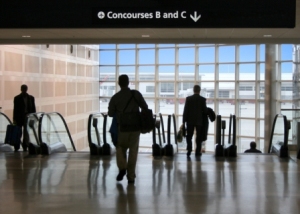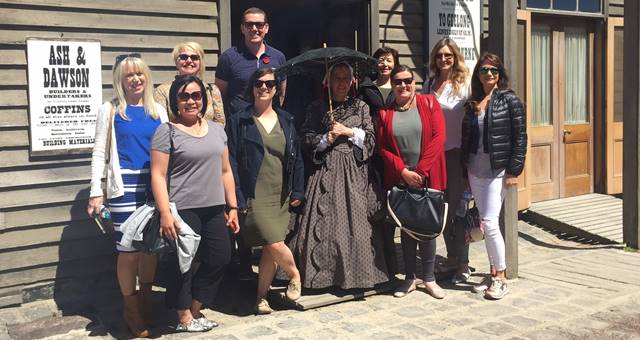Only 22% of Australian business travellers say the technology provided by their organisation is excellent. A staggering 30% deal with average, poor or very poor technology. In a comprehensive study of the Australian business traveller market – CWT Australian Business Traveller Insights: Mobile Technology 2011 – Carlson Wagonlit Travel Australia (CWT) reveals that travellers are concerned with having access to the right mobile technology and devices to improve their productivity and travel experience.

As a part of the Australian Business Traveller Insights: Mobile Technology 2011 conducted by CWT, 1,000 Australian business travellers were surveyed to understand their behaviours and explore perceptions in the areas of technology and connectivity
The findings state that 83% of business travellers carry a laptop and a further 61% carry asmartphone when out on the road. Yet close to one third of business travellers say that the technology provided to them by their employers is average, poor or very poor, inhibiting productivity and contact with both professional and personal contacts. These travellers largely work within the government, health and education, and finance, banking
and insurance sectors.
The top four standard drivers for connectivity were rated as follows:
1. Ease of contact (72%)
2. Maintaining productivity (68%)
3. The ability to stay in touch with family and friends (68%)
4. Saves time (67%)
Matt Carracher, Director Products and Online Services, CWT Asia Pacific, emphasises the importance of meeting business travellers’ needs for on-demand information and real-time news.
“The right mobile technology and devices help keep travellers abreast of important business and environmental events, particularly those that impact business decisions or affect traveller safety and security,” said Carracher.
“The right tools also can help to avoid losses in time, money and employee satisfaction.”
Top mobile functions and technology innovations
The main mobile functions used by business travellers include email (93%), SMS (70%) and accessing the company network (65%). Further, the research shows that real time alerts (72%), mobile check-in (70%), in-flight WiFi (66%) and mobile paperless boarding passes (62%) are the top four technology innovations that would improve business traveller’s productivity and travel experience.
“Younger, savvier and more socially connected Gen Y travellers also offer a unique insight into the way business travel is likely to evolve in its use of mobile technology,” said Carracher. “They are much more positively pre-disposed to using technology when travelling for business. Interestingly, 34% say that the technology provided by their employers was “not so good”, while Baby Boomers rated theirs technology as being “good” or “excellent”.”
Mobile Applications
With the continual release of mobile travel applications by vendors worldwide, travel managers are tasked with the responsibility to choose the right applications for the business traveller, as well as educate them on the benefits, opportunities and advancements available in the market. More importantly Travel Managers are seeking advice from Travel Management Companies on the best mobile applications to limit travel policy violations, enhance security, support the travel process and ultimately reduce cost. 52% of travellers say that in-flight mobile phone calls or SMS would or already does enhance their business travel experience.
The growth of social media and the impact on business travel
The report findings show that social media has changed the face of business travel. A total of 82% of respondents cited ‘social contact’ as the greatest benefit of connectivity whilst travelling. This was made up of staying in touch with family and friends (68%), ensuring work/life balance (39%), enhanced business traveller experience (30%) and increasing personal safety/security while on the road (23%). In terms of Gen Y business travellers, 64% accessed personal social media when on the road, with females being the heavier users.
While the business traveller increasingly connects with contacts both internal and external to the company they work for, the opportunity, and in turn the challenge, is to establish the necessary parameters, guidelines and offerings around social media channels.
“Mobile services help business travellers make constructive use of their time, and to make the most of these opportunities, companies need to work with their travel management company to provide integrated online, offline and mobile solutions to increase employee satisfaction and productivity whilst travelling,” Carracher concluded.
To read the full research report please visit www.carlsonwagonlit.com.au/bti


